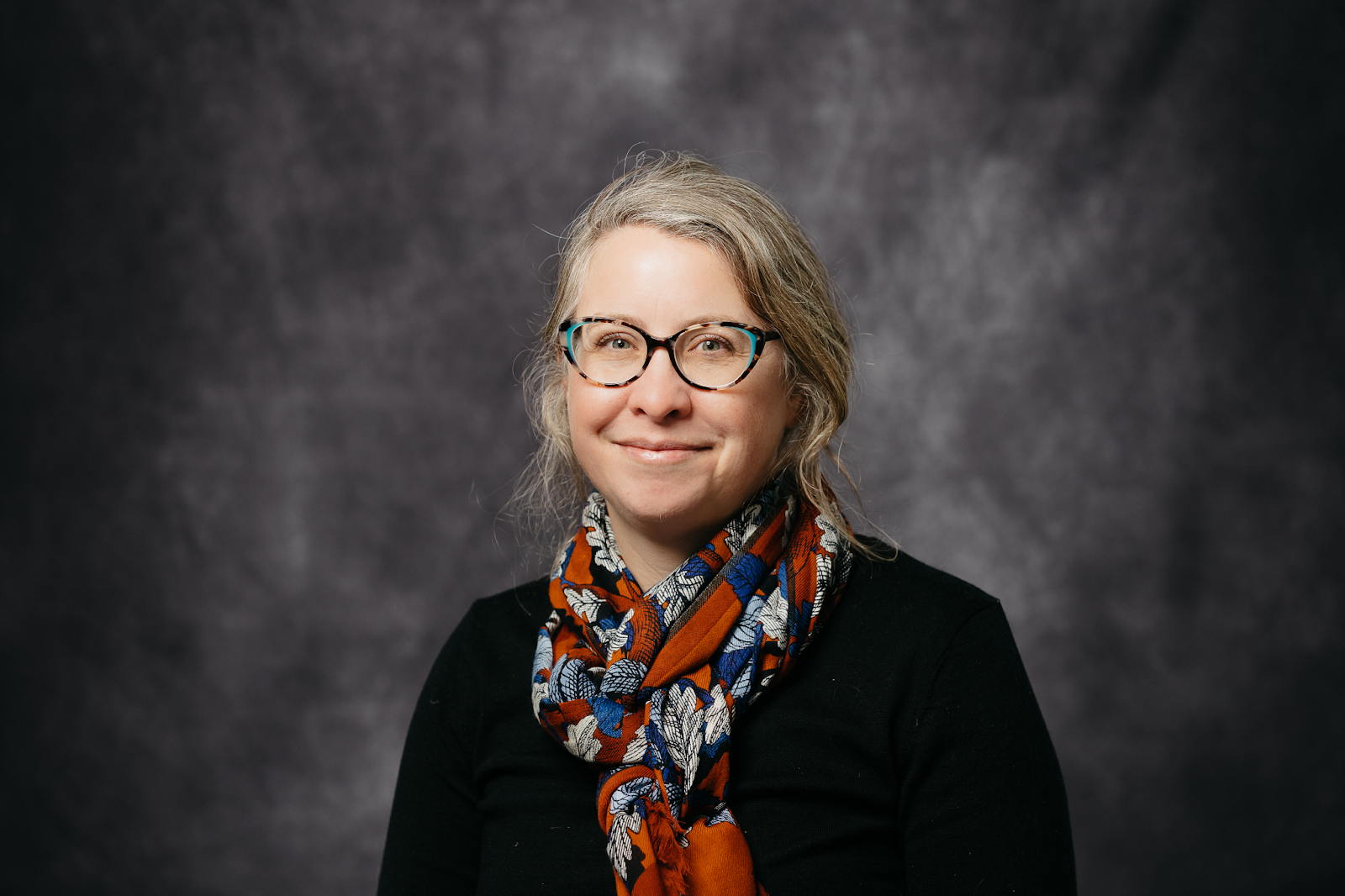Researcher’s curiosity about bilingualism and minority language maintenance leads to developing support for immigrant and refugee children
11 May 2023

Andrea MacLeod joined the University of Alberta’s Faculty of Rehabilitation Medicine in 2019. She is a professor in the Department of Communication Sciences and Disorders and an associate dean in the Faculty of Graduate Studies and Research.
Originally from eastern Ontario, MacLeod was curious about bilingual language development and minority language maintenance. “Growing up bilingual, I have always been interested in languages — the grammar, the sounds — and how we use languages to build relationships and community,” she says.
MacLeod is lab leader at the Multilingual Families Lab, where her community-based research is set within a social-justice framework. She works with local stakeholders to better understand the language development of immigrant children in inner-city schools; support early language development of refugee children; and train clinicians and educators in providing support for these children.
We recently caught up with MacLeod to find out more about her and her research.
What is your area of research and how did you get there?
I grew up bilingual. When I started developing an interest in speech-language pathology I thought there would be a lot of research in bilingualism, but discovered there actually wasn't that much up until the early 2000s. Knowing the importance of providing speech-language pathology services, and knowing the importance of making sure those services are adapted to bilinguals, I began my research journey with a master’s degree at the University of Vermont.
While there, I was able to work with Dr. Rebecca McCauley, who specializes in phonology in children's speech. She was a great mentor and encouraged me to think about taking the next step towards a PhD. I then moved to the University of Washington in Seattle to work with Dr. Carol Stoel-Gammon, another wonderful researcher in phonology.
After Seattle, I moved back to Canada for a postdoc at McGill University, actually in the same office where I worked as a research assistant during undergrad, and after a year I began a tenure track position at Université Laval in Québec City. It was a great place to work, but one of the bigger challenges was the small bilingual population in Québec City at the time. When a position opened up at the Université de Montréal, which was very much a multilingual city, I applied and got the job. It was a great place to build some momentum in bilingual research.
I moved to the University of Alberta in 2019, and I feel like I’m still discovering Edmonton because of the pandemic.
What is the research program you’re currently running at the U of A?
We do community-based participatory research, working collaboratively with clinicians in the community, community members and parents to co-design and drive our work.
One of the challenges of moving across the country was figuring out how to develop that community again here. So in 2019-20 we started reaching out to communities and building connections, and one of my last meetings before COVID hit us was with the executive director of the ABC Head Start Society, a non-profit that offers preschool services across Edmonton. By early summer 2020, we were able to collaborate with them and do a distanced, COVID-safe program with their summer camps. We started building momentum, and in the next year we developed a strong collaboration with the Multicultural Health Brokers Co-Op in Edmonton as well.
Our preschool language-stimulation program is eight to 10 weeks long, about an hour every week. We use shared book reading to create a space where there is a shared theme, and then we focus on vocabulary from the book that is related to the theme. We reinvest the vocabulary in different types of activities. The activities can be arts and crafts or more physical movement-type activities, but we come back to that vocabulary and the words that we use are, depending on the setting, only in the children's minoritized language.
If we're in a setting where children speak different languages, the group will use both English and the “language star” of that week. We'll circulate through the group and do different languages, so it's an opportunity for the children to see and hear their language, or other languages, used outside the home and for kids to feel proud and excited about their language and being bilingual.
How has your program been affected by COVID-19?
Most of my research is actually off campus, either in preschool settings or in community settings, so we were able to do a fair number of things online. But we weren’t sure how to make our research accessible, because we work with a lot of newcomer families who often experience barriers accessing technology.
Pretty quickly, we found that having an online option has ultimately made our research more accessible. We provided tablets with internet access to reduce the barriers to participation. For example, this fall we were going to have an in-person group, but when we reached out to the community and the families that were going to take part, they asked if they could do it online because it would be more convenient.
Are you getting any outcomes that surprise you?
I think there are definitely surprises. For example, when we start talking about bilingualism with the groups, some of the five- and six-year-old kids don't know what that word means. Once the kids find out, they start feeling proud about it. So what we thought was a small thing that we included in our program actually turned out to be a pretty important component.